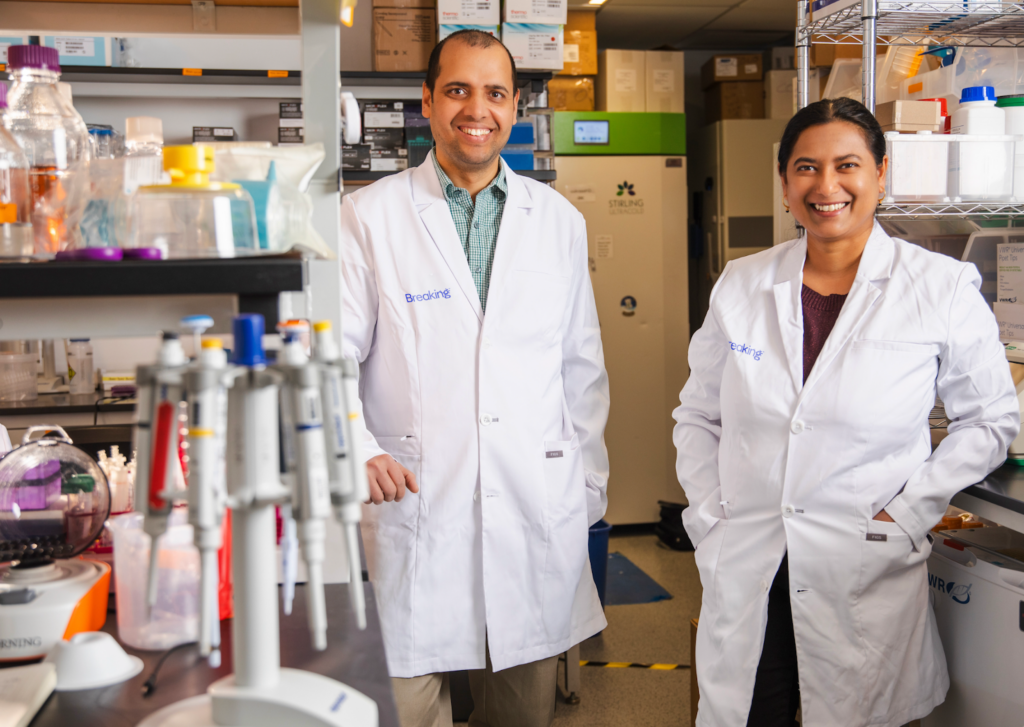
Colossal Biosciences is spinning out a new company, Breaking, a plastic degradation and synthetic biology company.
Colossal started the company at the Wyss Institute for Biologically Inspired Engineering at Harvard University.
“We could not be more thrilled to launch Breaking from Stealth from Colossal. The technologies co-developed by the Wyss Institute provide limitless applications to address our planet’s pervasive plastic contamination challenges,” Breaking Co-founder and Colossal CEO Ben Lamm said in a news release. “Part of our core mission of ecosystem restoration at Colossal can only be achieved by removing plastic that plagues our ecosystems and negatively impacts biodiversity.”
Breaking discovered X-32, “which can degrade polyolefins, polyesters, and polyamides leaving behind carbon dioxide, water, and biomass in as little as 22 months,” according to a news release.
“I’ve spent my career in synthetic biology and protein engineering with the hope of developing something this transformational,” Breaking Co-founder and CEO Sukanya Punthambaker, Ph.D, said in a news release. “In the future, our solution will be able to work across terrestrial and marine environments to break down today’s greatest threat to humankind/our existence: the plastic that is choking our world.”
Breaking, which previously raised $10.5 million in a seed round, was co-founded by the Founding Director of the Wyss Institute for Biologically Inspired Engineering at Harvard University, Donald Ingber, Harvard geneticist George Church, CEO Punthambaker, CSO Vaskar Gnyawali, Alba Tull, Kent Wakeford, and Ben Lamm.
Plastics are a huge societal problem. “Today, 5,000 million tons of plastic are in landfills, oceans, and ecosystems. And 390 million tons more of plastic are produced yearly, up 22,400% since 1950. Plastics have been found in Antarctic sea ice and in marine animals in deep ocean trenches. Even bottled water contains almost a quarter of a million nanoplastic fragments,” according to a news release.
The X-32 breaks down plastics’ chemical structure and can do it with up to 90 percent of polyesters and polyolefins in less than 22 months.
“The microbe starts to work immediately. In lab tests, X-32 started to break down paint brush bristles, fishing wire, and dental floss in less than five days. If left untreated, paint bristles brushes can take 450-1000 years to decompose, fishing wire can take 600 years, and dental floss would take 80 years,” according to a news release.
Concurrently, X-32 utilizes plastics as a primary carbon source and needs no pre-treatment, sorting, cleaning, or decontamination and it emits carbon dioxide, water, and biomass during the degradation process.
Today’s primary recycling processes are inefficient and either degrade the plastic to the point it becomes unusable or contribute to other environmental harms. Crushing and grinding destroy the fibers in plastics, making them unsuitable for re-use. As a result, only 9% of plastic makes it to a recycling plant. The most efficient disposal method, incineration, furthers the carbon crisis and releases toxic chemicals. But Breaking’s X-32 has no known negative environmental ramifications.
The team will now utilize its expertise in synthetic biology to engineer X-32 into a faster, more efficient, and uniquely effective solution to break down more plastic faster.
“Breaking is solving one of the biggest problems on our planet. They are using the natural world as inspiration and layering on cutting-edge technology to transform how we break down plastics,” Jim Kim, General Partner of Builders VC and a lead investor in Breaking, said in a news release.
“The first in-field pilots will target the food waste and composting industry,” Kent Wakeford, Executive Chairman and Co-Founder of Breaking, said in a news release. Food waste in landfills costs $16 billion in taxpayer dollars per year. But that food can’t be composted because of plastic contamination. If we can remove the plastics, we can save the government a lot of money, reduce greenhouse gas emissions, and help improve overall quality of life.”
Additionally, as X-32 degrades plastics, it generates biomass containing different biomolecules that may also be immensely valuable in various industries.
